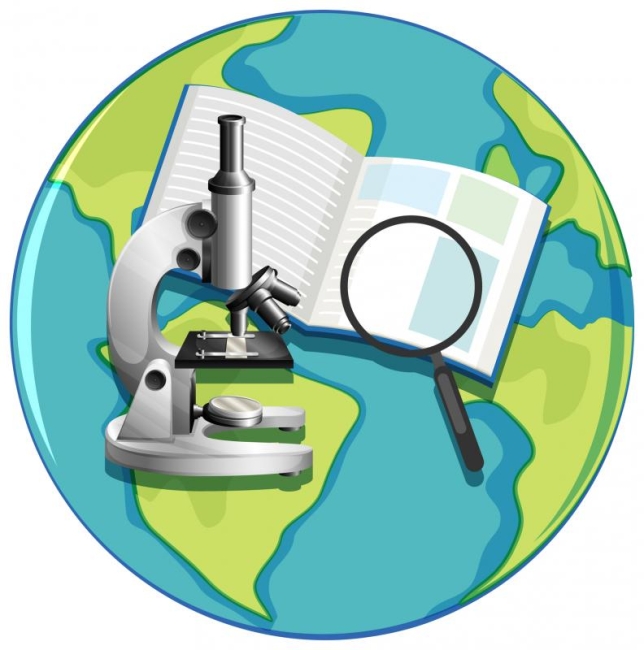You have /5 articles left.
Sign up for a free account or log in.

blueringmedia/Istock/getty images
International graduate students and postdocs in the United States lead multifaceted lives despite immigration obstacles and separation from social support systems. The distinct facets of the lives of international Ph.D. and postdoc trainees (hereafter called international researchers) deserve a spotlight. In this article, we highlight the exceptional strengths of international researchers, who make bold life decisions, take major leaps to follow their instincts and dreams, build new lives at the intersection of their personal and professional identities, and form international networks through collaborations. These life strengths are valuable as international researchers contemplate the directions of their future lives in an evolving global workforce.
Both of us moved to the United States -- Sonali to pursue a Ph.D. and postdoc, and Jenny for postdoc training. Following our postdoc training at Sloan Kettering Institute in New York, we transitioned to academic administration to support professional development of graduate students and postdocs. Through our own experience, we recognize that varied identities, visa status and cultural backgrounds add complex nuances to international researchers’ lives. Moreover, global mobility, family expectations and immigration logistics can further complicate the pursuit of professional advancement in a foreign environment. Those factors may manifest in a tendency to overwork to justify one's presence and self-worth.
We recommend that international researchers pay attention to the immense wealth of wisdom and strengths that they’ve gained through their lived experiences. Acknowledging and evaluating such strengths will inspire them to broaden their perceived personal and professional realm of possibilities and embolden them to continue exercising the power of choice amid any constraints of circumstances. Below, we each draw on our life experiences and provide actionable advice for international researchers on how to derive power from their holistic selves beyond their professional skills. We highlight three important life strengths of international researchers that are valued in the workplace.
Cultural intelligence. International researchers move between countries and continents to pursue knowledge and careers. This global mobility strengthens cultural intelligence, which involves motivation to learn and understand new cultures, as well as mindfulness to navigate distinct cultural scenarios.
Sonali: I lived primarily in three culturally distinct cities in the northern, eastern and southern parts of India. I often felt like an outsider in my country, which motivated me to analyze norms, similarities and distinctions in those multicultural societies. I did the same while pursuing professional training in Israel and later Ph.D. and postdoc training in the United States. While living in three American states with different cultures, my curiosity to learn, observe similarities and distinctions, and draw connections has facilitated my personal growth. This strength further helped my transition to academic administration and program development work, which often differs culturally from academic research.
Adapting to cultures doesn't necessarily mean assimilating; it is more about connecting through differences toward mutual goals. My perspectives as a cultural outlier continues to add diversity and depth to my professional environments.
Jenny: I was born in Ukraine and raised in Israel. I was often torn between my Soviet home upbringing and the Middle Eastern temperament of daily life in Israel. Instead of "picking a side," I decided to absorb what was right for me from my multicultural environment. I had the (hard-earned) privilege of observing, trying on and constructing my own hybrid identity from that vast cultural pool.
Now, whenever I enter a new and unfamiliar environment, I stop and listen. I observe the good, the bad, the familiar and the brand-new. Instead of rejecting things that are different, I see them as exciting discoveries. I lean in to the initial discomfort and take time to learn.
This is very rewarding, both personally and professionally. When I moved to New York for my postdoc, I formed friendships and professional collaborations with people from different countries, something I would be unable to do without respecting the vastness and boundaries of other cultures. This cultural intelligence became even more important in academic administration work. When I talk to trainees from different countries, cultural and ethnic backgrounds, religions, and outlooks, I know to ask questions first and never assume anything before giving professional advice.
Communication. Living in multicultural and multilingual societies affords international researchers a nuanced understanding and appreciation of diverse communication styles -- another valuable skill in a global workforce, as highlighted in a National Science Foundation report on foreign-born STEM students and workers in the United States.
Sonali: I am multilingual, as many Indians are. In the Indian cities where I lived, I developed necessary communication skills in regional languages in addition to the three languages I spoke with friends and family. Similarly, in Israel, I quickly picked up basic colloquial expressions and numbers in Hebrew. As observed with multilingual speakers, language is a form of expression and is disconnected from thought. I don't think in any one language and learn and unlearn communication styles nimbly. Moreover, I am relatively comfortable in communicating through nonverbal cues in absence of a common language.
These acquired traits have helped me navigate both oral and written communication styles as well as norms of professional presence in different fields -- whether in scientific research, clinical labs or academic administration. I advise trainees and collaborate with faculty and staff members in STEM, humanities and social sciences disciplines in my current job. Flexibility with a broad array of communication styles has helped me connect with individuals who express themselves differently. Over the years, I documented these observations in a journal that highlighted my personal growth and my strengths in cultural intelligence and communication.
Jenny: My family and I share two languages, Hebrew and Russian, but our fluency differs. These languages have different nuances and sentiments that can be interpreted (or misinterpreted) differently based on the tone alone, without even delving into the meaning of the words.
Over the years, that has created some interesting miscommunications. It is an ongoing challenge to pause, translate and scale the intention of the words based on my audience’s language skills, accents and personal and cultural communication preferences. Nonetheless, such experiences taught me lessons and gave me essential skills of immense advantage in the multicultural science world. I learned to be respectful and patient, recognize my own biases, and never assume someone's intellectual capabilities based on aspects like language skills and accents. I pay acute attention to nuances and nonverbal cues, and I ask when something is unclear, whether it's the word or the intent. This multidimensional approach to communication is a strength in the multilingual, international research world we navigate today and was particularly helpful to me when working with INet-NYC, an organization that supports the professional development of international researchers.
Courage. International researchers exercise implicit courage and take risks when making life and career decisions, sometimes overcoming significant circumstantial odds. This proactive courage inspires resilience in the face of suboptimal and adverse situations in a new environment.
Sonali: Exploring and preparing for careers beyond the bench after a decade of RNA biology research was challenging as well as tenuous due to the specific stipulations of nonimmigrant visas. Through difficult times, career advisers in Sloan Kettering’s Office of Science Education & Training bolstered my confidence in the strengths that inspired my past professional decisions. I reflected on my courage in two defining moments: 1) when I confounded expectations by pursuing an undergraduate major in microbiology over medical school, and 2) when I took the risk of leaving a health-care job in India and moved continents for Ph.D. training in the United States.
Circumstances in academe can dilute that sense of adventure our younger selves once had. I found myself asking again, “What do I really like doing” and “Where can I do that kind of work?” And ultimately, “Whom do I aspire to be?” Yet again, countries didn't matter; after all, if I could move continents once, I could do it again. I acknowledge the liberty of taking such risks, as I don't have dependents. But in all circumstances, I believe we have a window of choice that we may be hesitant to explore. (Read this article to learn more.) I encourage other international researchers to look back at their past selves and explore the questions that inspired their research journey.
Jenny: My family pushed back on my decision to move to the United States for postdoc training. They worked hard to migrate to Israel to give me a better life and did not fully understand my decision to move away and go through the hardships of immigration again. Instead of weakening my resolve, the doubts of my family and friends motivated me to carefully evaluate my choices and the reasonings behind them. I fine-tuned my execution plans and became more confident with my choices.
In hindsight, standing up for my convictions despite outside pressures and my internalized fears allowed me to make the exciting and scary leap from bench research to my current career in academic administration. It taught me the courage to let go, explore the unknown and push back on normative beliefs in my career and personal life. All that has made me a better-prepared professional for a variety of careers.
We encourage international researchers to do similar exercises to contemplate the holistic strengths that many employers in diverse professional sectors value. We suggest that you reflect on life moments and determine your personal strengths through journaling, discuss collective strengths of international research communities in peer groups (this article outlines the benefits) and seek guidance from career advisers. (Two recent "Carpe Careers" articles offer international graduate students advice on academic challenges and transparency on graduate education.)
Finally, we urge academics to celebrate their international colleagues as holistic individuals and share their stories of courage, imagination and fresh perspectives -- in addition to their work ethics, research accomplishments and immigration challenges.




